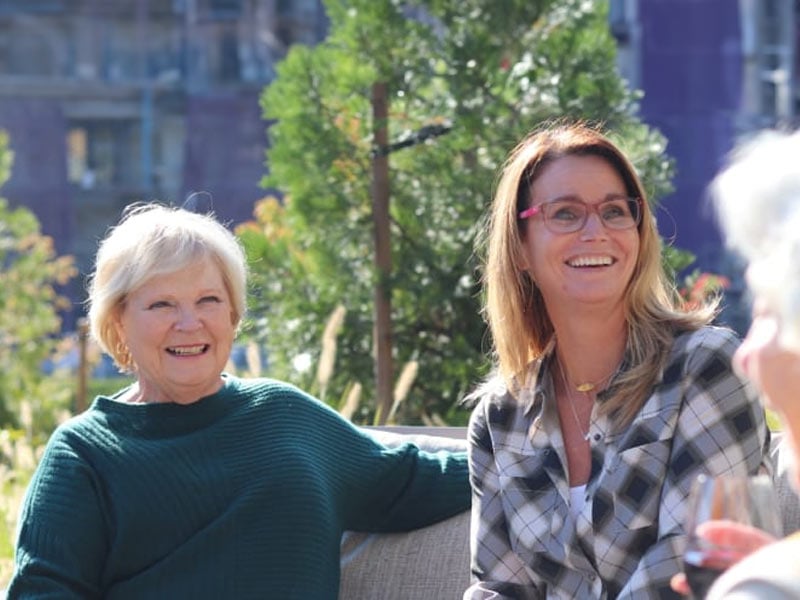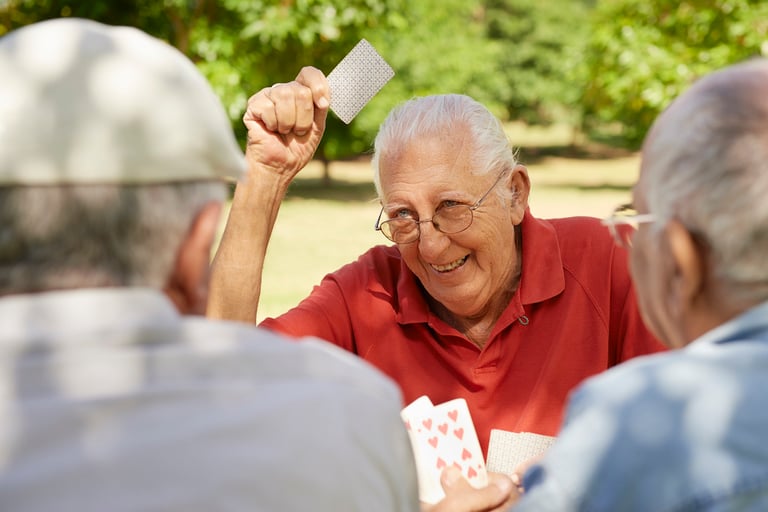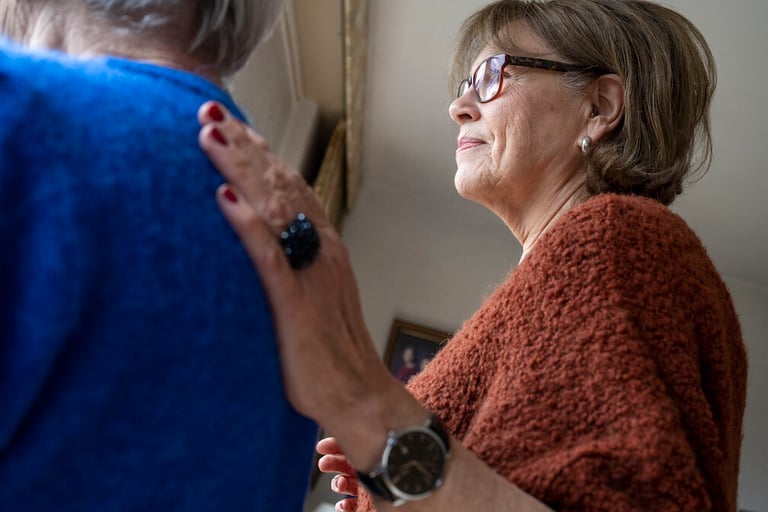We all know the benefits of exercise for our bodies and minds, as well as the importance of healthy eating. New studies shine a light on physical and mental fitness as it relates to the aging process, and the results are impressive. Many people are growing older in a time of better understanding of how being both physically and mentally fit benefits us. We see people not only living longer, but living healthier, longer.
The National Institute on Aging has a lot to say about Exercise & Physical Activity including “Being physically active can help you continue to do the things you enjoy and stay independent as you age.” Experts also say that older adults should be active every day to maintain their health. What does every day activity look like? The amount of activity and types vary by ability. The Center for Disease Control and Prevention recommends that people 65 years and older, who are generally fit and have no limiting health conditions, follow the minimum guidelines for important health benefits: 150 minutes of moderate aerobic activity per week (brisk walking) or 75 minutes of vigorous aerobic activity (jogging, bicycling) plus 2 or more days of muscle-strengthening activities.
Janet Bodie, Fitness Director at The Springs Living, says combining a healthy life style of eating and exercising creates an overall sense of well-being. She also acknowledges that sometimes this can be hard to do on your own, which is why she keeps residents motivated, leading by example, with enthusiasm and passion. “The biggest key for me is having fun while exercising. We keep our classes fresh, new and contemporary. We also set attainable goals, with a mantra of ‘Progress, not Perfection.’” Janet says that one of the most important aspects to physical fitness as you age is holding yourself accountable. By maintaining your own physical fitness schedule and healthy eating habits, seniors can maintain independence for much longer.
Lisa Oetken, Life Enrichment Director at The Springs Living, says exercising your brain in addition to your body is the other piece of the puzzle in terms of mental and physical health as you age. “Let’s begin by understanding that the brain behaves like a muscle. By using it, you can increase the size and strength of the cellular connectivity (neurogenesis or plasticity),” she explains. “We also know that brain function effects our well-being. Our ability to pay attention, concentrate, control distraction, problem solve, plan, and reason directly influence our abilities to drive safely, control falling, and to take care of ourselves.”
Lisa offers these five tips for improving cognitive wellness that you can do at any age, and any level of abilities.
1: Challenge Your Mind with Games and Puzzles: We’ve all heard the adage, “use it or lose it.” Challenging your brain with puzzles and games is an easy way to improve brain function. Do you like crossword puzzles? Why not try a different type of puzzle, such as Sudoku? Keep a curious and open mind. Listen to others with the intent to learn something new. If you enjoy watching birds, research that unfamiliar bird to learn more about it. Later, test yourself. What do you remember about what you learned? Can you recall what you had for breakfast yesterday? You can also keep your mind challenged by joining a committee or through volunteerism. That’s a win for everyone!
2: Practice Mindful Meditation: Scientific research shows that practicing mindful meditation can relieve stress and anxiety, increase immune response, enhance attention and memory, reduce the risk of depression and improve mood, lead to better decision making, and can protect the aging brain by physically changing brain structure. Mindfulness is paying attention to your body and mind, slowing down, not worrying about the past or the future but rather focusing on the present. When we practice Mindful Meditation, we learn to let go of stress and cultivate positive thoughts. It is a practice - and the more we practice, the better we become.
3: Try Something New: Did you know that stepping out of your comfort zone and trying something new stimulates brain growth? Brush your teeth with your opposite hand, or try using your non-dominate hand to write or operate the computer mouse or television remote. Sign up for a watercolor, photography or cooking class. In addition to strengthening the brain, trying something new can help you overcome fear and stimulate creativity.
4: Socialize: Connecting with others has real health benefits such as reducing blood pressure, improving the immune system, and reducing both anxiety and depression. Social engagement also reduces cognitive decline and may even reduce your chances of developing Alzheimer’s disease. People with more social support tend to live longer than those who are isolated. Here are some ways to maintain social health: walk through your neighborhood or market and say hello to people, join a choir, visit the library or a museum. Play card games with friends, or Skype with family and friends from a distance.
5: Dual-Tasking: Dual tasking is the term for combining multiple types of activities processed in different regions of the brain. Some examples of dual tasking are dancing or participating in theater, where participants combine memory (steps and lines), emotion (delivery and expression) and movement. Next time you take a walk, try to spell words forwards then backwards, name the states, or think of a vegetable or fruit that begins with the letters of the alphabet. These tasks activate different parts of the brain at once and trigger the growth of new brain cells.
Both Janet and Lisa strive for the importance of staying consistent with every day efforts. While starting an exercise program can be difficult, if you start slowly and build upon your efforts, soon you’ll be doing much more than you thought possible. The mind, as well and the body, easily adapt to a slow and steady progression. If you already have a solid fitness plan, maintain it or continue to build. By taking a proactive stance on your physical and mental health, you essentially give your body the best medicine available for a long and healthy life.







.jpg?width=960&length=960&name=group-of-three-mature-caucasian-women-enjoying-emb-2024-05-07-17-57-17-utc%20(1).jpg)




